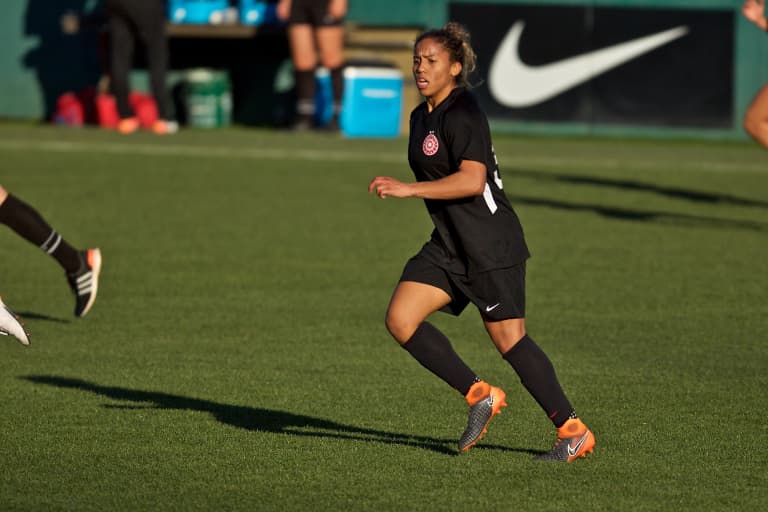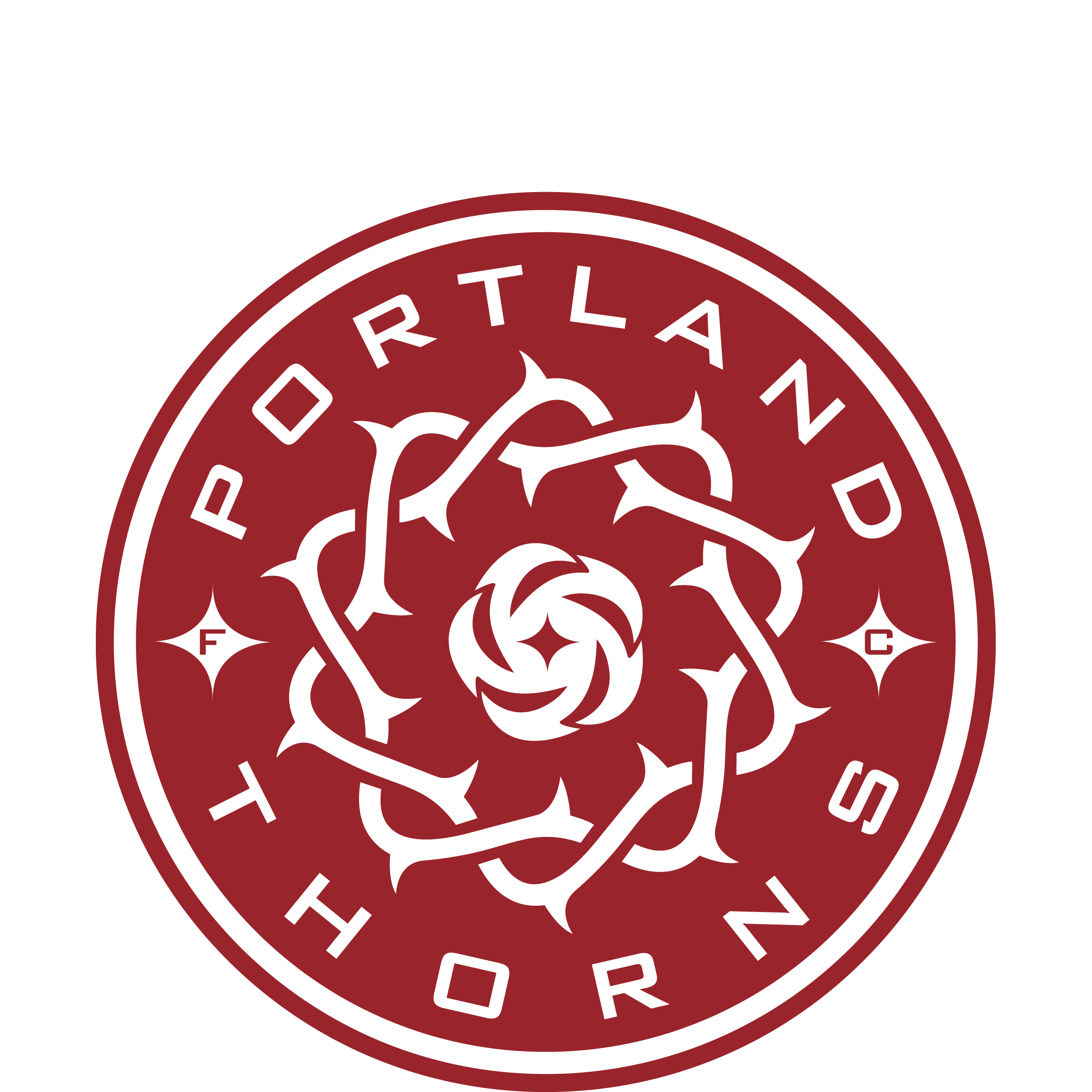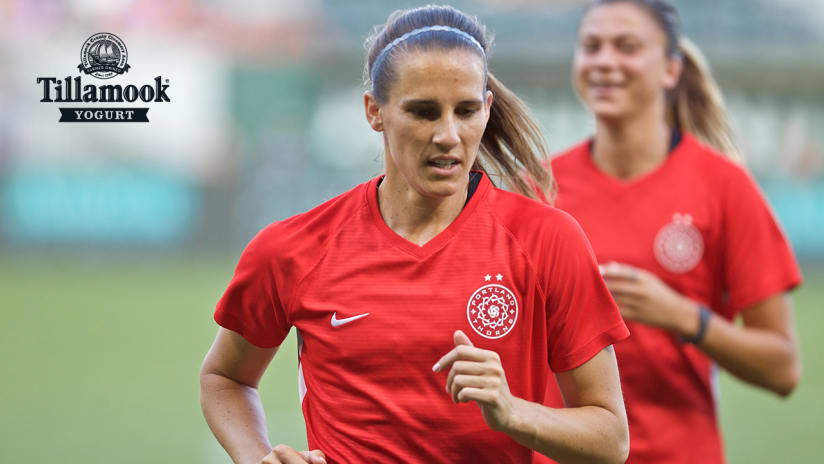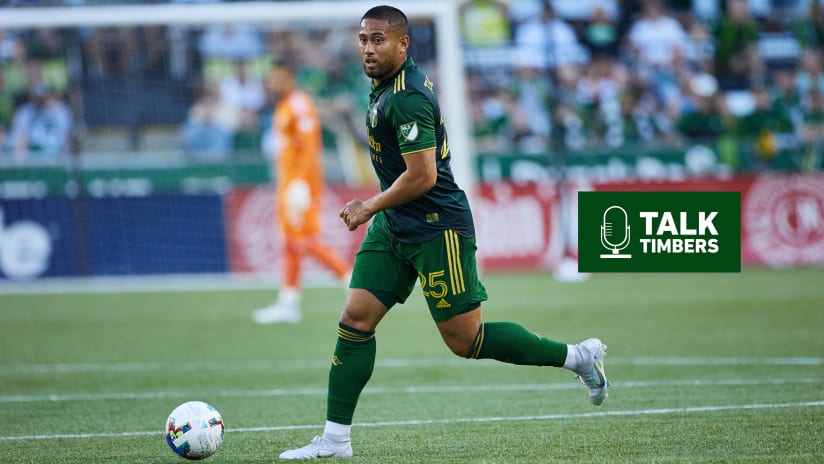PORTLAND, Ore. – She’s one of the most important parts of Portland Thorns FC, both on and off the field, but as the defending National Women’s Soccer League champions prepare for the first game of their 2018 postseason, defender Katherine Reynolds is on the sideline, watching when physical therapy sessions don’t take her from benches, recovering from a knee injury and surgery that ended her season half-way through the team’s July 21 victory at Sky Blue FC.
“It’s definitely a different perspective,” she admits, on the west sideline of the Thorns’ home field, having just returned from a physical therapy session at the Providence Sports Care Center in the stadium’s southeast corner. “I’m not going to say that [being sidelined is] easy, especially the last game, because those are the games that you want to be playing – playing those big games, and the crowd was so amazing.”
It was the biggest win of the Thorns’ season, a 3-1 triumph over Seattle Reign FC that earned Portland home-field advantage in the NWSL Playoff semifinals against Seattle on Saturday (12pm PT, Lifetime | TICKETS| Presented by Tillamook Yogurt).
“To beat Seattle, that just seemed like so much fun,” Reynolds remembers. “I think that was one of the times I felt most frustrated with my situation, because I would love to be out there. On the other hand, I was just so happy for everyone. It was just a good performance. It’s a difficult situation.”
Reynolds has been a consistent presence in Portland’s defense since arriving in the Rose City in 2016, playing right and center back on teams that have won an NWSL Shield (2016) and NWSL Championship title (2017), but now, her situation is not so different than that of Meg Morris, a 26-year-old attacker who, earlier this season, having hopes of returning from a major hip injury, saw her ailment assigned season-ending status.
That change has meant little to Morris’ place in the team’s culture. She’s back on the field, now, taking part in training and helping the squad’s active players prepare for their semifinal, but even when she wasn’t playing Morris was at training almost every day, taking part in early stretching and ball work, and watching from the sidelines for opportunities to help.
“Even though my role is different,” Morris explains, “it’s easy for me to help motivate with different things, whether it’s cheering on my teammates, or trying to work hard – I guess trying to keep the environment as positive as I can be, even when things aren’t going the way we want them to go.”

Like Reynolds, Morris can’t sugarcoat the realities of her injury. No player wants to have the “play” part of their identity taken from them. But, perhaps with a greater awareness than most, the North Carolina product knows her contributions can transcend the field.
“It’s definitely tough, obviously. You know you’re not going to play. You know you’re not going to be in the game,” she rues. “But I always try to put the team first. I come in, I try to have a smile on my face, try to bring that positivity to the culture, to the training session.
“If it makes one person happy, I think my job is done, even if it doesn’t make everybody happy. I just try to smile and enjoy my time here.”
Every team wants to portray their injured players as remaining part of their group, but that isn’t always the case. Sometimes it’s the player, mentally dealing with their injury, who needs to be away from the squad. Other times, the culture of teams, often defined by distinct, often cultural packs within the group, mean players feel a type of quasi-isolation. As Thorns fans have seen very publicly, recently, with right winger Hayley Raso’s season-ending injury and just-ended time in a Washington, D.C., hospital, injuries cast their victims in a new world, apart from the one defined by physical activity, its challenges, and the ability to define yourself on the field.
As evidenced this Sunday, though, at the team’s annual Stand Together Banquet, that dynamic is different on the Thorns. To see the players interacting with each other at downtown Portland’s The Nines Hotel would witness a group of players scarcely distinguishable from each other, in terms of health. Only a brace on her leg would give Reynolds away, while Morris, both in appearance and interaction, was every bit a part of the group. The circles of activity in the hotel’s halls and banquet rooms didn’t filter teammates by injury status. Outside the white-bordered rectangle at Providence Park, Morris and Reynolds have stayed part of the group.
“Number one, it starts with them,” head coach Mark Parsons said, when asked about his injured players within the team’s culture. “You don’t have to do or say anything to keep them engaged. They know what their role is, this week. They can’t help us on the field, but they can help a lot off the field. Without telling them that, they know, and there’s a few bonus things for one of them to keep an eye on as we progress through this week.”
“Kath can’t be on her feet, all the time, but in the meetings, she’s been there and engaged and supporting the back line, watching every part of the session. Players coming out, grabbing a drink, she’s always in their ear. Meg Morris is training and working with us, and she’s got a few side projects this week on the mental side to keep supporting the group.”
Reynolds, in particular, could have been a major loss, had the Thorns’ culture not been as welcoming to its injured parts. That dynamic is defined by Christine Sinclair, but within the Canadian international’s understated approach, there are a number of players who provide reinforcement. They allow the free spirits to be free, the young players to grow, and the maturing players to find themselves, all within an environment that is buttressed by Sinclair’s standards; Emily Menges’ consistency and maturity; Katherine Reynolds’ temperament and experience.
Losing her contributions on the field was challenge enough. The loss of Reynolds’ presence, had she not still felt a place in the group, would have been a significant blow. She is a key part of what the Thorns have built.
“She leads by example, Kath does,” Parsons explained. “She leads every single prehab session, pre-warmup, warmup – every touch, every practice, every day. She wants to be at her best, performing at her best.
“You can’t always have a 10 out of 10 in quality. You can’t always control that. But you can control your attitude, your focus, your energy, your intensity, and Kath does that. “
Keeping players like Reynolds close a virtue of the group, but from the outside, it’s unclear why (or if) it is a distinct virtue. Reynolds, though, having played with six different teams before arriving in Portland, does think the dynamic is distinct, attributing it to the simplest of explanations.
“It’s just a great group of people,” she says, “and I feel like I personally have great relationships with every single person on this team. I enjoy time with every single person on this team. There’s no one I wouldn’t want to spend time with.
“Having that feeling makes me want to be here for them, because they’ve been here for me, through my injury. They’ve made it clear they miss me, are thinking of me, and want me to be out there. Just knowing we have that mutual feeling makes me happy, and I’m happy to be a part of this team.”
She’ll be a part on Saturday: in the locker room pregame; in the suites, above the game, at the whistle; on the field with her teammates afterward. Morris will be there, too. They’ve been there all season, and although neither Morris nor Reynolds will be in uniform, each have played their part. The team’s culture has made it easy for them to do so.














